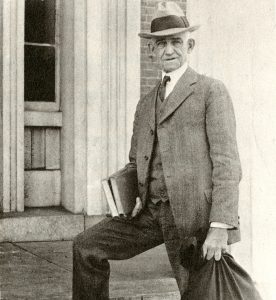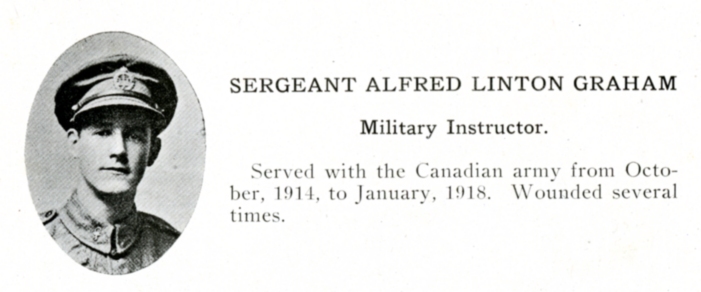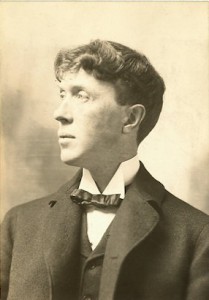
Sidney Nelson Morse taught English, and occasionally Latin and Greek, at Williston Seminary from 1890 until 1927. A product of Williston, class of 1886, and Yale, 1890, he also served as Alumni Secretary, remaining in that role for several years beyond his “official” retirement. From 1918 to 1927 he was Secretary to the Faculty. His principal responsibility was to take the minutes of weekly faculty meetings. These documents survive, in 48 exam bluebooks, scrawled in Morse’s sometimes challenging handwriting and often written in the distinctive blue pencil which, for reasons unknown, he favored.
While admittedly there is much repetition in the texts, gems emerge. The minutes are, in fact, a detailed chronicle of Williston life from the perhaps necessarily narrow window of her teachers. Here we present some excerpts from approximately a century ago, 1918-1921, which might resonate today. (Editor’s annotations are in italics.)
November 22, 1918: “Suggested that a teacher be detailed to be in Northampton Sat. night and to come back in the last car to see that Williston boys are O.K., each teacher in turn.” (In those days light rail service ran between Easthampton and Northampton.)
(The First World War had finally ended in November, 1918. With the Armistice came a demand for more “normal” campus activities.)
March 14, 1919: “The matter of petition from the students to take 2 hrs. military drill a week in place of 4 was not acted upon except so far as to leave unchanged the present schedule in general until May 1, & any slight changes to be left at the discretion of Sergt. Graham.” (Sergeant Alfred Linton Graham had served with the Canadian Army from 1914 until his discharge in January 1918. Williston employed him as a military instructor during the 1918-19 school year.)

This writer’s sense is that there is far too much of the following. It should be noted, though, that such discussions of individual disciplinary matters among the full faculty continued until fairly recently. Even after a century, it seems appropriate to abbreviate students’ names.
May 16, 1919: “Moved, that R___ M___ be kept on strict probation and denied all out-of-bounds privileges for the rest of the term; and if he be allowed to return next year, his return to, and continuance in, Williston shall be strictly conditioned (Unexcused absences beyond 20 for the year 1918-19). Carried.”
“Moved, that J___ A___, for presenting forged excuses for absence from school exercises be put on strict probation as to conduct and attitude toward his work; and further, in case he returns to school next year, he shall pay in advance full tuition for each term. Carried.” Continue reading


